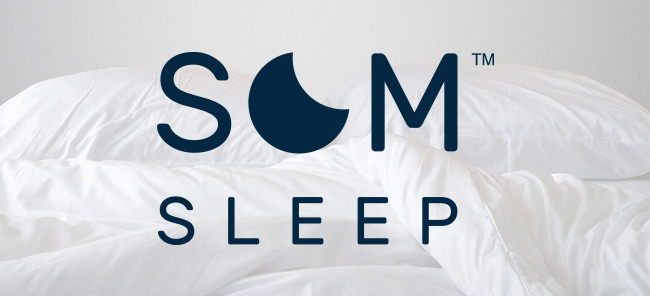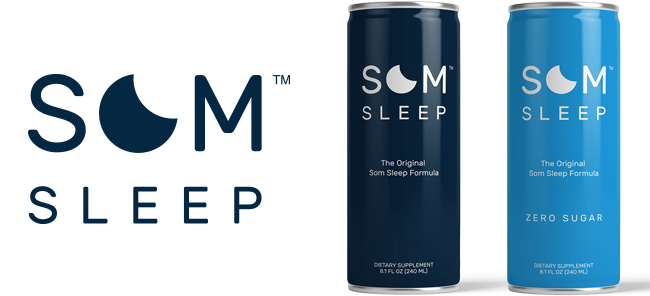Before he could create a drink to help him sleep, John Shegerian needed a wake-up call.
His came in a painful way: while at home alone, he collapsed from exhaustion in his kitchen, smashing his face against the counter, breaking his nose and ending up unconscious on the kitchen floor. A relentless serial entrepreneur since the early 90’s, Shegerian had spent years without getting much sleep, and now he found himself running on fumes. After a second incident, in which he fell asleep at the wheel of his car and barely missed running into oncoming traffic, he knew it was time to make a change.
These misadventures in insomnia led Shegerian to create Som, a sleep-aid dietary supplement sold in 8.1 oz. cans in original and zero sugar varieties. Based on Shegerian’s personal sleep tonic and launched with the help of venture capitalist co-founder Abdul Khan, the formula contains magnesium, vitamin B6, l-theanine, GABA, and melatonin to help give consumers a deep, restful slumber.
“Every business I go into has to be a potential moneymaker,” Shegerian said. “But it also has to have a huge social bottom line.”
Shegerian said he sees Som as an alternative for the millennial and Gen Z “energy generation” that has become reliant on energy drinks and coffee throughout the day, ultimately wreaking havoc on their sleep cycles. His college-aged son has told him that classmates will drink NyQuil to get to bed. Overall, he said, the majority of Americans have trouble sleeping at least one night a week, leaving a large demographic of potential consumers. Although the global market for sleep aids is worth nearly $80 billion, Shegerian said he believes many of the available drugs and supplements come with harmful side effects such as sleepwalking and liver damage, leaving space in the market for a better, innovative product.
“I look at the world as a series of voids,” he said. “Where are the voids in the marketplace? There are voids that are interesting, things that are less interesting. But then you find the void that is most relatable to you, it becomes very personal.”
Som is launching via its own website and through Amazon on January 23. The drinks retail for $9.99 per 4-pack. The company is also in talks with several chain retailers across specialty and mainstream channels, however Shegerian said buyers are divided whether to put Som in the sleep aid aisle, the beverage cooler, or at checkout. Shegerian said he sees the cross-category identity for the brand as a sign of versatility.
Other brands offering sleep beverages have emerged, including Neuro Drinks and Dream Water, but the category is still nascent and the functional ingredients often force brands to identify as dietary supplements for regulatory reasons. As ecommerce mattress retailers and sleep technology startups manufacturing smart pillows and sleep monitors emerge, Shegerian hopes Som will stand out as an important part of a revolution in the sleep industry.
“This is a new category, I can’t predict where it’s going to go, but it’s going to grow,” he said. “We think our product is not only going to be big in the United States, but around the world. We want to democratize sleep, and make it affordable and acceptable to everyone.”

